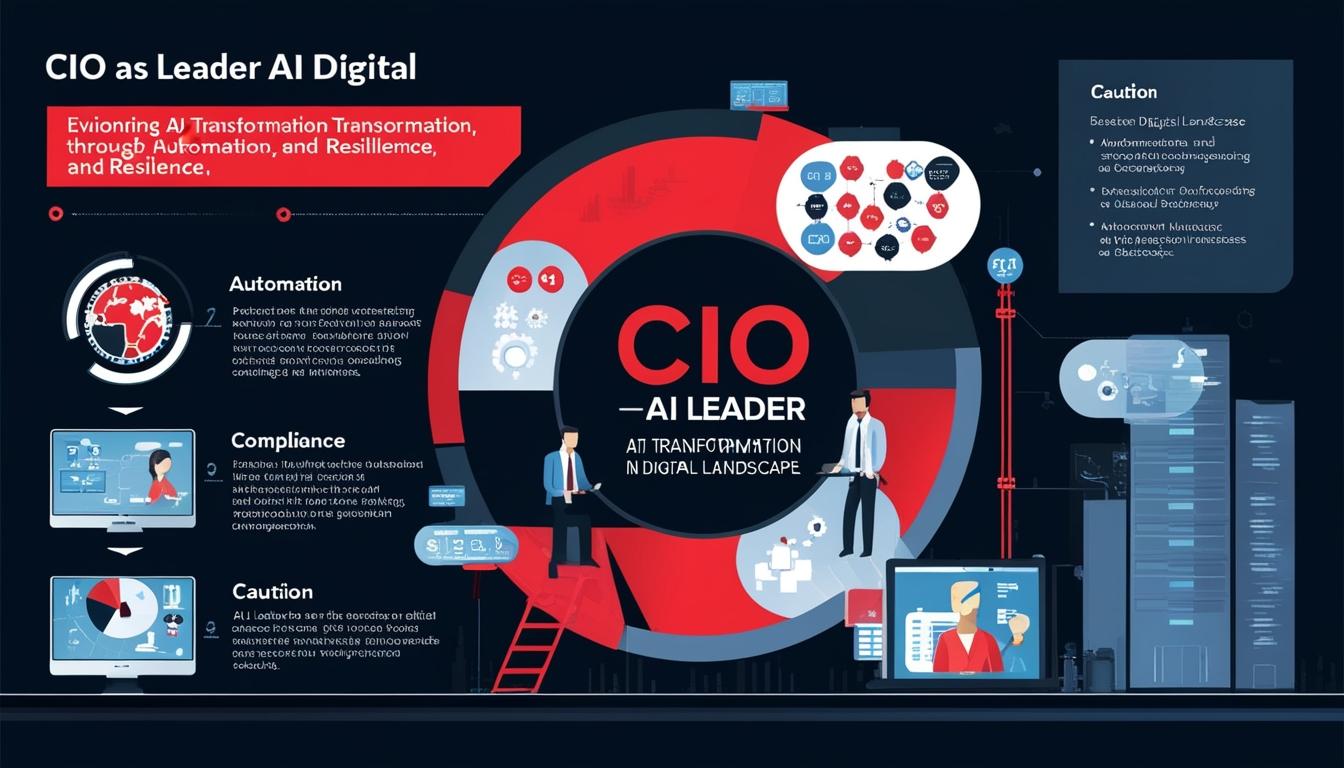The technology sector has seen substantial changes in 2024, marked by both innovation and challenges. The year has witnessed a significant boom in artificial intelligence (AI), which has been tempered by a growing sense of caution among businesses. In July, a global IT outage disrupted thousands of organisations, underscoring the vulnerabilities prevalent in today’s interconnected digital landscape. Alongside the turbulence, an increase in regulations, notably the Network and Information Security Directive (NIS2) and Europe's forthcoming Digital Operational Resilience Act (DORA), has compelled businesses to enhance their incident reporting systems to ensure compliance.
As organisations prepare for 2025, experts from PagerDuty have shared insights on anticipated developments in the realm of AI automation and its impact on business practices. They highlight crucial themes such as the evolving role of the Chief Information Officer (CIO), the integration of automation into strategic decision-making, and the evolution of operations management.
The role of the CIO is set to undergo a fundamental transformation as next-generation technologies become commonplace. Eric Johnson, CIO at PagerDuty, asserts that in 2025, CIOs will emerge as vital members of the C-suite, tasked with leading digital innovation and integrating technologies such as AI, quantum computing, and advanced analytics. Johnson emphasises that the CIOs’ capacity to translate these capabilities into tangible business outcomes will position them as critical players in board-level discussions, thus steering company strategies and enhancing digital transformations across operations.
As responsibilities expand, CIOs will increasingly take on the role of chief AI officer within their organisations, managing the AI ecosystem and collaborating closely with legal, compliance, security, HR, and other C-suite members. Johnson indicates that "CIOs will pioneer 'AI impact assessments' as a standard practice before any AI tool is deployed." This proactive approach aims to balance innovation with the necessary risk management, ensuring that organisations can harness AI responsibly.
Moreover, as automation and AI technologies gain acceptance, senior leadership teams will leverage these tools to inform their strategic decisions. Eduardo Crespo, vice president of EMEA at PagerDuty, anticipates that enhanced automation and analytics capabilities will empower CIOs to react swiftly to industry trends, thus fostering agility within organisations. This evolution in operational strategies will see CIOs and CTOs fine-tuning their focus to differentiate between AI capabilities and prevalent misconceptions, aiming to deliver genuine value to their customers.
The concept of 'Everything As Code' is poised for expansive growth in 2025. Heath Newburn, global field CTO, forecasts a shift where site reliability engineering (SRE) and DevOps practices will become increasingly AI-guided and driven. This change will position automation not merely as a supplementary tool but as a core organisational capability akin to security or compliance functions. With a focus on reducing traditional staffing models, operations centres will transition to an AI-assisted framework, enabling teams to address more challenges proactively.
Tim Chinchen, director of solution consulting, projects a move toward autonomous operations across routine business functions. By adopting low-touch operations through AI technologies—including generative AI and machine learning—organisations can redirect employee efforts towards more sophisticated, value-added tasks rather than routine operational chores.
As operational efficiency becomes paramount, particularly in light of rising incident management costs, firms are expected to invest in AI and automation solutions to enhance incident response and overall business resilience. The evolving dynamics of operational management and business strategy underscore the potential for AI automation to redefine organisational frameworks throughout 2025 and beyond. The ability to swiftly adapt and implement these innovations will be essential for future business success.
Source: Noah Wire Services
